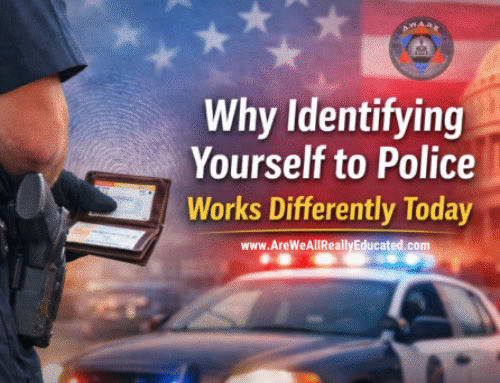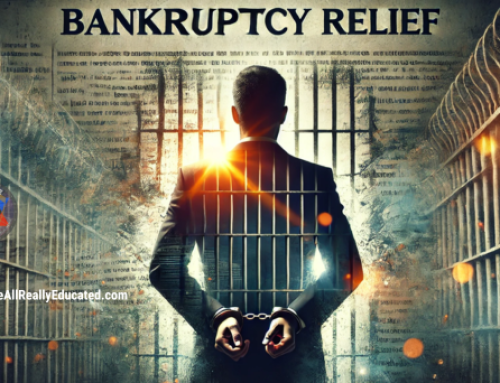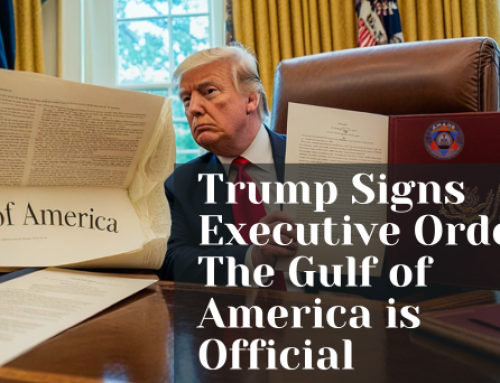MEMORANDUM
Why Attorneys Can’t Testify
Goodguy, Ambassador of the Lord Jesus Christ, domiciled in the Kingdom of God, Servant of His most Excellent Majesty, the Lord Jesus Christ, acting in the Name and pursuant to the Grace of the same, Defendant in the instant case, submit this Memorandum of Law on Trinsey v. Pagliaro in support of his Motion to Dismiss.
THE ELEVENTH AMENDMENT
It is a violation of the 11th Amendment for a FOREIGN CITIZEN to INVOKE the JUDICIAL POWER OF THE STATE.
Article XI. The Judicial power of the United States shall not be construed to extend to any suit in law or equity, commenced or prosecuted against one of the United States by Citizens of another State, or by Citizens or Subjects of any Foreign State.
S. citizens (federal citizens) are FOREIGN to the several State and SUBJECTS OF THE FEDERAL UNITED STATES/STATE of NEW COLUMBIA/DISTRICT OF COLUMBIA. Attorneys, therefore, are considered FOREIGN AGENTS under the FOREIGN AGENTS REGISTRATION ACT[FARA] and are SUBJECTS of the BAR ASSOCIATION [BRISTISH ACCREDITING REGENCY]. By virtue of the 11th Amendment, government and corporations and their agents are foreclosed from parity with real, living, sentient human beings. Rights of sentient beings are God-given by virtue of God’s creation of mankind (Genesis 1:26ff) while corporations and governments only have limited powers—powers granted to them by their human creator.
Supreme Court of the United States 1795
“Inasmuch as every government is an artificial person, an abstraction, and a creature of the mind only, a government can interface only with other artificial persons. The imaginary, having neither actuality nor substance, is foreclosed from creating and attaining parity with the tangible. The legal manifestation of this is that no government, as well as any law, agency, aspect, court, etc. can concern itself with anything other than corporate, artificial persons and the contracts between them.” (S.C.R. 1795, Penhallow v. Doane’s Administraters (3 U.S. 54; 1 L.Ed. 57; 3 Dall. 54).
ON THE DUTY OF THE COURT
It is not the duty of the court to be religious and mediate faith claims deficient of empirical evidence. Men can claim anything, but the court has no duty to any Plaintiff lacking proof of claim. Even historic Christianity avoided fideism by providing many “infallible proofs” in its assertion that the Lord Jesus Christ rose from the dead (John 20:25; Acts 1:3).
It is not the duty of the court to be involved in politics voting for their favorite party or to cast a vote for party slogans. The fact that the opposing attorney and the judge belong to the same commercial club called the BAR should alert the Court that the judge in the instant case is called to be fair, impartial, and non-prejudicial.
[Judges] are the depositary of the laws; the living oracles, who must decide in all cases of doubt, and who are bound by an oath to decide according to the law of the land. [Blackstone, 1 COMMENTARIES *69.]
It is the duty of the Court to insure that pleadings are sufficient to invoke judicial authority. Pleadings that lack evidence supported by fact can only be deemed as a “failure to state a claim upon which relief can be granted” (Rule 1-012).
It is the duty of the Court to seek the truth. Lady Justice is blind. She carries the scales of justice with a duty to make sure there is an “agreement between thought and reality;” between “faith claims and reality.”
It is the duty of the Court and jury to determine the facts, the actual events or existence of an occurrence. Facts differ from truth in that facts are more related to specific events of an occurrence, while truth is a holistic, unified conclusion regarding a series of actual occurrences.
It is, therefore, the duty of the Court to discern the truth in a controversy by weighing the evidence.
“No instruction was asked, but, as we have said, the judge told the jury that they were to regard only the evidence admitted by him, not statements of counsel”, Holt v. United States, (10/31/10) 218 U.S. 245, 54 L. Ed. 1021, 31 S. Ct. 2,
[W]e may take it as a general rule, “that the decisions of courts of justice are the evidence of what is common law.” [Blackstone, 1 COMMENTARIES *71.]
The best evidence of the common law is to be found in the decisions of the courts of justice . . .. The reports of judicial decisions contain the most certain evidence, and the most authoritative and precise application of the rules of the common law. [Kent, J., 1 COMMENTARIES, at 473-78.]
It is the duty of the Court to place those who testify “under oath” so that truth can proceed and succeed. In fact, since there is only one form of action, civil action (Rule 1-001), no civil action can proceed with warrant without first supplying an oath of affirmation by an injured party stating with particularity and specificity the facts in the action and their competence to proceed with a claim.
4th Amendment: The right of the people to be secure in their persons, houses, papers, and effects, against unreasonable searches and seizures, shall not be violated, and no Warrantsshall issue, but upon probable cause, supported by Oath or affirmation, and particularly describing the place to be searched, and the persons or things to be seized.
It is the duty of the court to weigh the evidence, not faith claims or assertions or statements of belief; e., the court must be deaf to an attorney’s beliefs that are not supported by eye-witness testimony or documentary evidence.
Evidence: Any species of proof, or probative matter, legally presented at the trial of an issue, but the act of the parties and through the medium of witnesses, records, documents, exhibits, concrete objects, etc. for the purpose of inducing a belief in the minds of the court or jury as to their contention (Taylor v. Howard, 111 R.I. 527, 304, A.2d 891, 893.
Evidence: Testimony, writing, or material objects offered in proof of an alleged fact or proposition, People v. Leonard, 207 C.A.2d 409, 24 Cal.Rptr. 597, 600 (See also: Black’s Law Dictionary, Sixth Edition, p. 555).
It is the duty of the Court to weigh ONLY the facts and the truth on the scales of justice. Decision and rulings must be based on truth. Truth is Expressed in the Form of an Affidavit (Maxim of Law) and An Unrebutted Affidavit stands as Truth in the Matter (Maxim of Law); that is, truth can only be expressed verbally under oath by verbal testimony or in a sworn affidavit. Without an affidavit, there is no truth, no facts, and no evidence on record.
“Where there are no depositions, admissions, or affidavits the court has no facts to rely on for a summary determination.” Trinsey v. Pagliaro, D.C. Pa. 1964, 229 F. Supp. 647.
It is the duty of the court to Validate and Verify faith claims before they are permitted on the scales of justice. Truth claims must be validated; that is, “attested,” “certified,” and “legalized” by oath of affirmation to provide sufficient strength and legal force to be considered as evidence. In some instances, original documents are required to be produced (Rule 1002).
It is the duty of the court to require the Plaintiff to provide proof, not the duty of the Defendant to prove innocence or the invalidity of a faith claim.
Administrative Procedures Act, 5 U.S.C. Part I, Chapter 5, II, § 556 ((d)) Except as otherwise provided by statute, the proponent of a rule or order has the burden of proof.
It is the duty of the court to disallow statements of counsel as evidence.
Trinsey v Pagliaro, D.C.Pa. 1964, 229 F.Supp. 647. “Statements of counsel in brief or in argument are not facts before the court and are therefore insufficient for a motion to dismiss or for summary judgment.”
Pro Per and pro se litigants should therefore always remember that the majority of the time, the motion to dismiss a case is only argued by the opposing attorney, who is not allowed to testify on the facts of the case, the motion to dismiss is never argued by the real party in interest.
“Where there are no depositions, admissions, or affidavits the court has no facts to rely on for a summary determination.” Trinsey v. Pagliaro, D.C. Pa. 1964, 229 F. Supp. 647.
LIMITATIONS OF BAR ATTORNEYS
BAR ATTORNEYS are not the source of truth! BAR attorneys are precluded from testifying on behalf of a client or advancing his religious faith claims for the following reasons:
REASON ONE
Attorneys have a duty to God and conscience to be truthful even if truth is adverse to their client’s interest. Judging by the jokes in public about attorneys, it is obvious the profession has sunk to new lows when it comes to honesty and integrity because their interests are more commercial than moral.
Exodus 20:16 Thou shalt not bear false witness against thy neighbour.
It is decidedly unchristian to win at any cost—Kenneth Starr
Only facts can be entered into evidence. Attorney are required to provide proof of claim or they are asking the court to join the religion of fideism.
. . . the proponent of a rule or order has the burden of proof. (Administrative Procedures Act, circa)
Evidence: Any species of proof, or probative matter, legally presented the trial of an issue, by the act of the parties and through the medium of witnesses, records, documents, exhibits, concrete objects, etc. for the purpose of inducing beliefs (Black’s Law Dictionary, Sixth Edition, p. 555).
Fideism: reliance on faith instead of fact and reason to establish a belief claim (See Webster’s Dictionary).
REASON TWO:
The rules of evidence that truth can only be determined from a first-hand witness with personal knowledge (Rule 602). Attorneys can’t testify because they lack first-hand knowledge.
REASON THREE:
The rules of evidence assert that for a statement to be deemed as true, it must be stated under oath (Rule 603). Since a BAR attorney is not under oath nothing he says can be trusted or entered into evidence. A man not under oath can make any claim he wants without impunity. Furthermore, no oath can be trusted unless the holy name of Almighty God is invoked and called to be the Witness of a man’s “truth” statements. Only the Supreme Being (YHWH) has perfect knowledge and only the omniscient, omnipresent, eternal God can judge one who commits perjury without human detection (See Deuteronomy 3:11; 6:13).
REASON FOUR:
The rules of evidence preclude hearsay as proof of claim (Rule 802). Since the attorney is not a first-hand witness, anything and everything he says must be considered as hearsay and not be permitted to be placed on the scales of justice.
REASON FIVE:
Statement of counsel in brief or in oral argument re not facts before the court. In Trinsey v. Pagliarothe Court ruled that attorneys cannot admit evidence into the court. BAR attorneys are not sentient human beings but corporate fictions; and, therefore are prevented from testifying on behalf of their corporate clients; that is, they are prevented by law to testify on behalf of blind, deaf, fictional corporation or in absence of a competent, sentient eye witness. The Court must weigh the evidence.
“An attorney for the plaintiff cannot admit evidence into the court. He is either an attorney or a witness”. (Trinsey v. Pagliaro D.C.Pa. 1964, 229 F. Supp. 647)
“Manifestly, [such statements] cannot be properly considered by us in the disposition of [a) case.” United States v. Lovasco (06/09/77) 431 U.S. 783, 97 S. Ct. 2044, 52 L. Ed. 2d 752,
“Under no possible view, however, of the findings we are considering can they be held to constitute a compliance with the statute, since they merely embody conflicting statements of counsel concerning the facts as they suppose them to be and their appreciation of the law which they deem applicable, there being, therefore, no attempt whatever to state the ultimate facts by a consideration of which we would be able to conclude whether or not the judgment was warranted.” Gonzales v. Buist. (04/01/12) 224 U.S. 126, 56 L. Ed. 693, 32 S. Ct. 463.
No instruction was asked, but, as we have said, the judge told the jury that they were to regard only the evidence admitted by him, not statements of counsel, Holt v. United States, (10/31/10) 218 U.S. 245, 54 L. Ed. 1021, 31 S. Ct. 2,
REASON SIX:
Attorneys can’t authenticate any documents if they are not a first-hand, eyewitness of an actual event. Any statements by an attorney that a document is valid must be rejected as evidence unless it is certified, validated, and certified by a competent witness.
REASON SEVEN:
Attorneys statements in briefs do not rise to the level of fact or truth or evidence.
“Statements of counsel in brief or in argument are not facts before the court and are therefore insufficient for a motion to dismiss or for summary judgment.” Trinsey v Pagliaro, D.C.Pa. 1964, 229 F.Supp. 647.
REASON EIGHT:
Attorneys must either be an attorney or a witness. He cannot be both. Professional statements of litigants attorney are treated as affidavits, and attorney making statements may be cross-examined regarding substance of statement, Frunzar v. Allied Property and Casualty Ins. Co., (Iowa 1996) 548 N.W.2d 880.
REASON NINE:
Plaintiff attorneys have the burden of proof to provide evidence to the court; ie., the defendant has no duty to prove his innocence:
Administrative Procedures Act, 5 U.S.C. Part I, Chapter 5, II, § 556 ((d)) Except as otherwise provided by statute, the proponent of a rule or order has the burden of proof. , Porter v. Porter, (N.D. 1979 ) 274 N.W.2d 235. Furthermore, the attorney is not permitted to administer an oath in his cases applies as well, Deyo v. Detroit Creamery Co (Mich 1932) 241 N.W.2d 244.
REASON TEN:
Attorneys can’t administer oaths of affiants. Statutes forbidding administering of oath by attorney’s in cases in which they may be engaged applies to affidavits as well, Deyo v. Detroit Creamery Co (Mich 1932) 241 N.W.2d 244
REASON ELEVEN:
Attorneys are required to submit original copies and competent affidavits in support of claim (NMRCP, Rule 1-009 I.).
LIMITATIONS OF PROSECUTORS
A prosecutor cannot be a witness.
“The prosecutor is not a witness; and he should not be permitted to add to the record either by subtle or gross improprieties. Those who have experienced the full thrust of the power of government when leveled against them know that the only protection the citizen has is in the requirement for a fair trial.” Donnelly v. Dechristoforo, 1974.SCT.41709 ¶ 56; 416 U.S. 637 (1974) Mr. Justice Douglas, dissenting.
SUMMARY
The court’s only duty is to weigh the evidence. Attorney’s briefs and or verbal statements are not proof of anything and cannot be entered into the record as evidence. If there are no affidavits of truth, there are no facts, if there are no fact, there is no evidence on record; if there is no evidence to support a claim, the claim must be dismissed.
PLEADING
Therefore, attorneys not being able to testify, Defendant requests this court to strike all oral testimony as evidence and all briefs submitted by opposing counsel which lack a competent witness and a competent affidavit, to weigh competent evidence, and to dismiss this case with prejudice in favor of the Defendant.
With Christ as my witness, the above brief is true and correct to the best of my knowledge, information, and belief.
Submitted this ________ of __________ in the year of the appearing of His Majesty, the Lord Jesus Christ, two thousand, and of the year of the Declaration of Independence of the united States of America from the tyranny of Great Britain, two-hundred and twenty six.
_______________________
His Majesty’s Servant,
Abassador __________,
c/o General Delivery,
United States Post Office
Anytown, uSA







Leave A Comment